Mayors Imagining the Just City: Volume 4
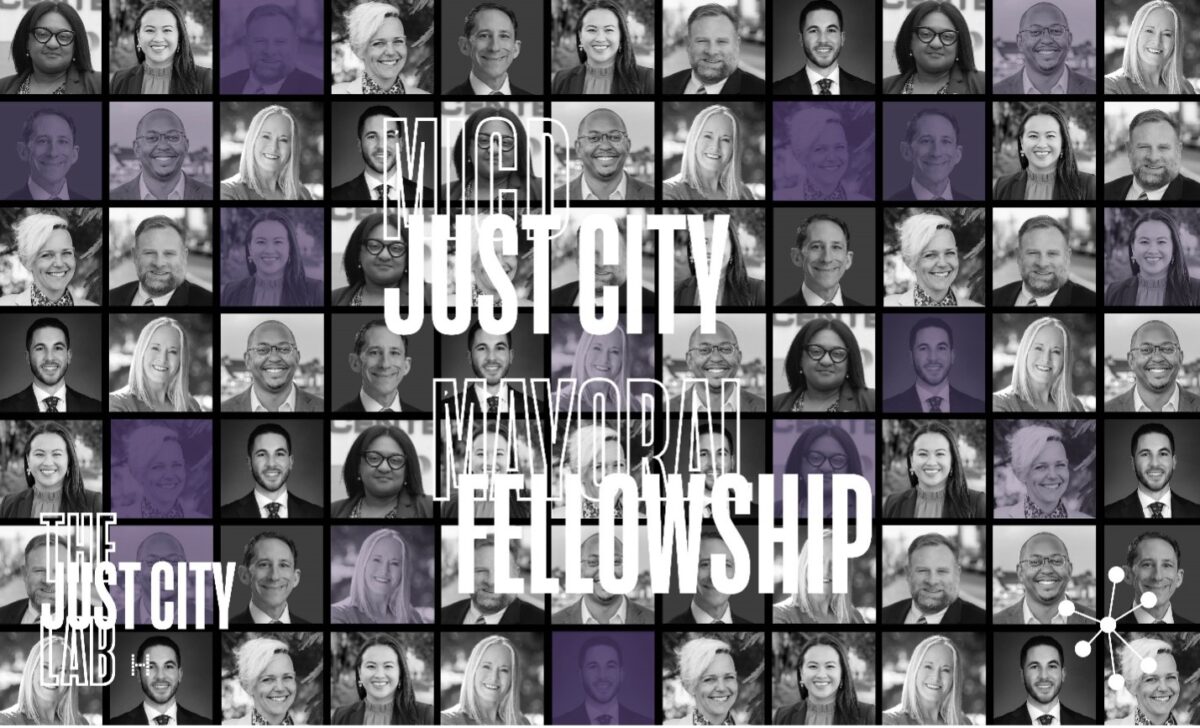
Event Description
Concluding the fourth annual Mayors’ Institute on City Design (MICD) Just City Mayoral Fellowship–a collaboration between MICD and Harvard GSD’s Just City Lab–the Fellows discuss strategies for using planning and design interventions to address racial, social, and environmental injustice in each of their cities.
Speakers
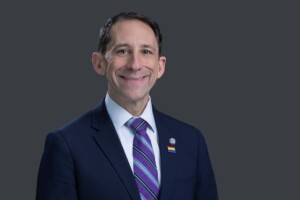
Mayor Matt Tuerk, Allentown, PA As Allentown’s 43rd Mayor and its inaugural Latino leader, Matt Tuerk, armed with an International Business degree and an MBA, leverages his expertise in economic development. His governance emphasizes strategic planning, budget management, and cross-disciplinary collaboration, resulting in notable enhancements to public safety, public works, and public health. Beyond leadership, Tuerk, an enthusiastic runner, language lover, and family man, truly embodies the commitment of a leader devoted to shaping his community’s future.
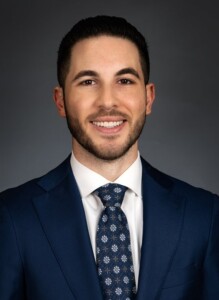 Mayor Abdullah H. Hammoud, Dearborn, MI Abdullah H. Hammoud, serving as Dearborn, MI’s seventh Mayor since January 2021, prioritizes co-governance with the public to foster a multiethnic democracy. As an epidemiologist deeply engaged in environmental advocacy, he passionately safeguards Michigan’s land, air, and water, advocating for healthier environments for children. A three-time University of Michigan graduate with MBA, MPH, and Bachelor of Science degrees, Hammoud, a proud son of immigrants, alongside his wife, Dr. Fatima Beydoun, is dedicated to raising their family in Dearborn while advocating for families citywide.
Mayor Abdullah H. Hammoud, Dearborn, MI Abdullah H. Hammoud, serving as Dearborn, MI’s seventh Mayor since January 2021, prioritizes co-governance with the public to foster a multiethnic democracy. As an epidemiologist deeply engaged in environmental advocacy, he passionately safeguards Michigan’s land, air, and water, advocating for healthier environments for children. A three-time University of Michigan graduate with MBA, MPH, and Bachelor of Science degrees, Hammoud, a proud son of immigrants, alongside his wife, Dr. Fatima Beydoun, is dedicated to raising their family in Dearborn while advocating for families citywide.
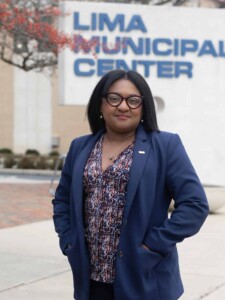 Mayor Sharetta Smith, Lima, OH Sharetta Smith, Lima’s 59th Mayor and the first woman and African American in the role, previously served as Chief of Staff, focusing on housing, afterschool programs, and modernizing city operations. In her mayoral role, she prioritizes citizen engagement, supports small businesses, promotes homeownership, and tackles crime comprehensively. With degrees from the University of Toledo and Ohio Northern University, Smith actively contributes to community betterment through involvement in various boards and committees.
Mayor Sharetta Smith, Lima, OH Sharetta Smith, Lima’s 59th Mayor and the first woman and African American in the role, previously served as Chief of Staff, focusing on housing, afterschool programs, and modernizing city operations. In her mayoral role, she prioritizes citizen engagement, supports small businesses, promotes homeownership, and tackles crime comprehensively. With degrees from the University of Toledo and Ohio Northern University, Smith actively contributes to community betterment through involvement in various boards and committees.
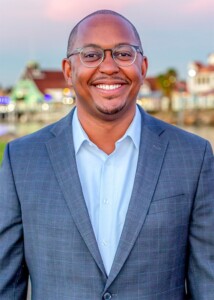 Mayor Rex Richardson, Long Beach, CA Rex Richardson, Long Beach’s 29th Mayor, is dedicated to community empowerment. The first African American Mayor in the city’s history and a former City Councilmember, he advocates positive change, collaborating with neighborhood leaders on public safety, economic, and community investments. Nationally, he advises the United States Conference of Mayors, while regionally, he serves on the Los Angeles County Affordable Housing Solutions Agency. As the leader of the 42nd most populous city, Richardson focuses on his “Opportunity Beach” Agenda, addressing homelessness, economic recovery, public safety, youth development, and environmental sustainability.
Mayor Rex Richardson, Long Beach, CA Rex Richardson, Long Beach’s 29th Mayor, is dedicated to community empowerment. The first African American Mayor in the city’s history and a former City Councilmember, he advocates positive change, collaborating with neighborhood leaders on public safety, economic, and community investments. Nationally, he advises the United States Conference of Mayors, while regionally, he serves on the Los Angeles County Affordable Housing Solutions Agency. As the leader of the 42nd most populous city, Richardson focuses on his “Opportunity Beach” Agenda, addressing homelessness, economic recovery, public safety, youth development, and environmental sustainability.
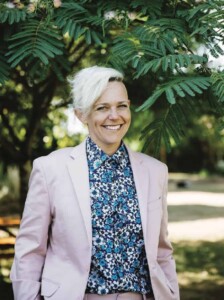 Mayor Remy Drabkin, McMinnville, Oregon Mayor Remy Drabkin of McMinnville, Oregon, a dedicated public servant for over 12 years, is the city’s first female, Jewish, and queer-identified Mayor. Serving on the City Council and Planning Commission, she established the Affordable Housing Commission and Diversity, Equity, and Inclusion (DE&I) Advisory Committee. As a housing advocate, her policies have provided shelter and aided in transitioning people out of homelessness. Remy actively engages in state-level advocacy, appointed by Governor Brown as a Director on the Oregon Wine Board. Co-founder of Wine Country Pride, she promotes LGBTQ+ Pride celebrations and established the world’s first Queer Wine Fest through her winery, Remy Wines, emphasizing sustainability and carbon sequestration.
Mayor Remy Drabkin, McMinnville, Oregon Mayor Remy Drabkin of McMinnville, Oregon, a dedicated public servant for over 12 years, is the city’s first female, Jewish, and queer-identified Mayor. Serving on the City Council and Planning Commission, she established the Affordable Housing Commission and Diversity, Equity, and Inclusion (DE&I) Advisory Committee. As a housing advocate, her policies have provided shelter and aided in transitioning people out of homelessness. Remy actively engages in state-level advocacy, appointed by Governor Brown as a Director on the Oregon Wine Board. Co-founder of Wine Country Pride, she promotes LGBTQ+ Pride celebrations and established the world’s first Queer Wine Fest through her winery, Remy Wines, emphasizing sustainability and carbon sequestration.
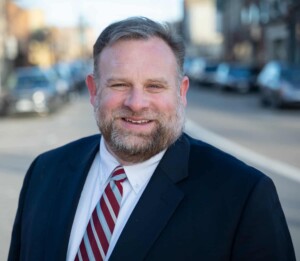 Mayor Cory Mason, Racine, WI Cory Mason, a fifth-generation Racine, Wisconsin resident, has dedicated over 17 years to serving his hometown as both a Wisconsin State Legislature member and its 61st Mayor. Re-elected six times to the State Assembly, he secured the Mayor’s office in a 2017 special election. Focused on rebuilding the middle class and promoting economic growth through technology and public-private partnerships, Mayor Mason recently started his second full four-year term. A Racine Case High School graduate, he holds a Bachelor of Arts in Philosophy from the University of Wisconsin – Madison and is a devoted family man.
Mayor Cory Mason, Racine, WI Cory Mason, a fifth-generation Racine, Wisconsin resident, has dedicated over 17 years to serving his hometown as both a Wisconsin State Legislature member and its 61st Mayor. Re-elected six times to the State Assembly, he secured the Mayor’s office in a 2017 special election. Focused on rebuilding the middle class and promoting economic growth through technology and public-private partnerships, Mayor Mason recently started his second full four-year term. A Racine Case High School graduate, he holds a Bachelor of Arts in Philosophy from the University of Wisconsin – Madison and is a devoted family man.
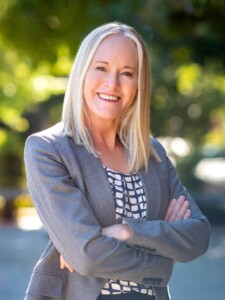 Mayor Kate Colin, San Rafael, CA In 2020, Kate Colin made history as the first female Mayor of San Rafael since its incorporation in 1847. Serving on the City Council since 2013 and previously as a Planning Commissioner for 8 years, she has repositioned city goals to prioritize economic growth, homelessness/housing, sustainability, and social justice. Mayor Kate fosters community engagement through initiatives like the Public Arts Review Board and Police Advisory Accountability Committee. As Chair of the San Rafael Sanitation Agency, she represents the city on various regional boards, advocating for gun safety and leading the city’s first Economic Strategic Plan.
Mayor Kate Colin, San Rafael, CA In 2020, Kate Colin made history as the first female Mayor of San Rafael since its incorporation in 1847. Serving on the City Council since 2013 and previously as a Planning Commissioner for 8 years, she has repositioned city goals to prioritize economic growth, homelessness/housing, sustainability, and social justice. Mayor Kate fosters community engagement through initiatives like the Public Arts Review Board and Police Advisory Accountability Committee. As Chair of the San Rafael Sanitation Agency, she represents the city on various regional boards, advocating for gun safety and leading the city’s first Economic Strategic Plan.
Moderator
 Toni L. Griffin is Professor in Practice of Urban Planning and the founder of Urban Planning and Design for the American City, based in New York. Through the practice, Toni served as Project Director the long-range planning initiative of the Detroit Work Project, and in 2013 completed and released Detroit Future City, a comprehensive citywide framework plan for urban transformation. Most recent clients include working with the cities of Memphis, Milwaukee and Pittsburgh.
Toni L. Griffin is Professor in Practice of Urban Planning and the founder of Urban Planning and Design for the American City, based in New York. Through the practice, Toni served as Project Director the long-range planning initiative of the Detroit Work Project, and in 2013 completed and released Detroit Future City, a comprehensive citywide framework plan for urban transformation. Most recent clients include working with the cities of Memphis, Milwaukee and Pittsburgh.
Ms. Griffin was recently a Professor of Architecture and the founding Director of the J. Max Bond Center on Design for the Just City at the Spitzer School of Architecture at the City College of New York. Founded in 2011, the Bond Center is dedicated to the advancement of design practice, education, research, and advocacy in ways that build and sustain resilient and just communities, cities, and regions. Currently, the Center is focused on several design research initiatives including the Legacy City Design Initiative, that explores innovative design solutions for cities that have lost greater than 20% population lost since their peak; “Just City Design Indicators Project” that seeks to define the core values of a just city and offer a performance measure tool to assist cities and communities with evaluating how design facilitates urban justice in the built environment; and “Inclusion in Architecture” that examines the participation of people of color in architecture and related design fields.
Partners

The Mayors’ Institute on City Design (MICD) is a leadership initiative of the National Endowment for the Arts in partnership with the United States Conference of Mayors. Since 1986, the Mayors’ Institute has helped transform communities through design by preparing mayors to be the chief urban designers of their cities.

The National Endowment for the Arts (NEA) is the independent federal agency, established by Congress in 1965, whose funding and support gives Americans the opportunity to participate in the arts, exercise their imaginations, and develop their creative capacities. Through partnerships with state arts agencies, local leaders, other federal agencies, and the philanthropic sector, the NEA supports arts learning, affirms and celebrates America’s rich and diverse cultural heritage, and extends its work to promote equal access to the arts in every community across America.

The United States Conference of Mayors (USCM) is the official nonpartisan organization of cities with populations of 30,000 or more. USCM promotes effective national urban/suburban policy, strengthens federal/city relationships, ensures that federal policy meets urban needs, provides mayors with leadership and management tools, and creates a forum in which mayors can share ideas and information.

At the Just City Lab, we ask: Would we design better places if we put the values of equality, inclusion or equity first? If a community articulated what it stood for, what it believed in, what it aspired to be — as a city, as a neighborhood — would it have a better chance of creating and sustaining more healthy, vibrant place with positive, economic, health, civic, cultural and environmental conditions? Imagine that the issues of race, income, education and unemployment inequality, and the resulting segregation, isolation and fear, could be addressed by planning and designing for greater access, agency, ownership, beauty, diversity or empowerment. Now imagine the Just City: the cities, neighborhoods and public spaces that thrive using a value-based approach to urban stabilization, revitalization and transformation. Imagine a set of values that would define a community’s aspiration for the Just City. Imagine we can assign metrics to measure design’s impact on justice. Imagine we can use these findings to deploy interventions that minimize conditions of injustice.
Harvard University welcomes individuals with disabilities to participate in its programs and activities. If you would like to request accommodations or have questions about the physical access provided, please contact the Public Programs Office at (617) 496-2414 or [email protected] in advance of your participation or visit. Requests for American Sign Language interpreters and/or CART providers should be made at least two weeks in advance. Please note that the University will make every effort to secure services, but that services are subject to availability.
#GSDEVENTS